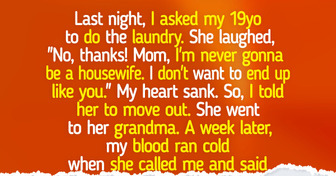When I was 8 yo, my parents took me to a psychiatrist. After my appointment, the psychiatrist told my parents that there was nothing wrong with me, I was just mean,
My Child Scared His Therapist, and What the Doctor Discovered Was Truly Shocking
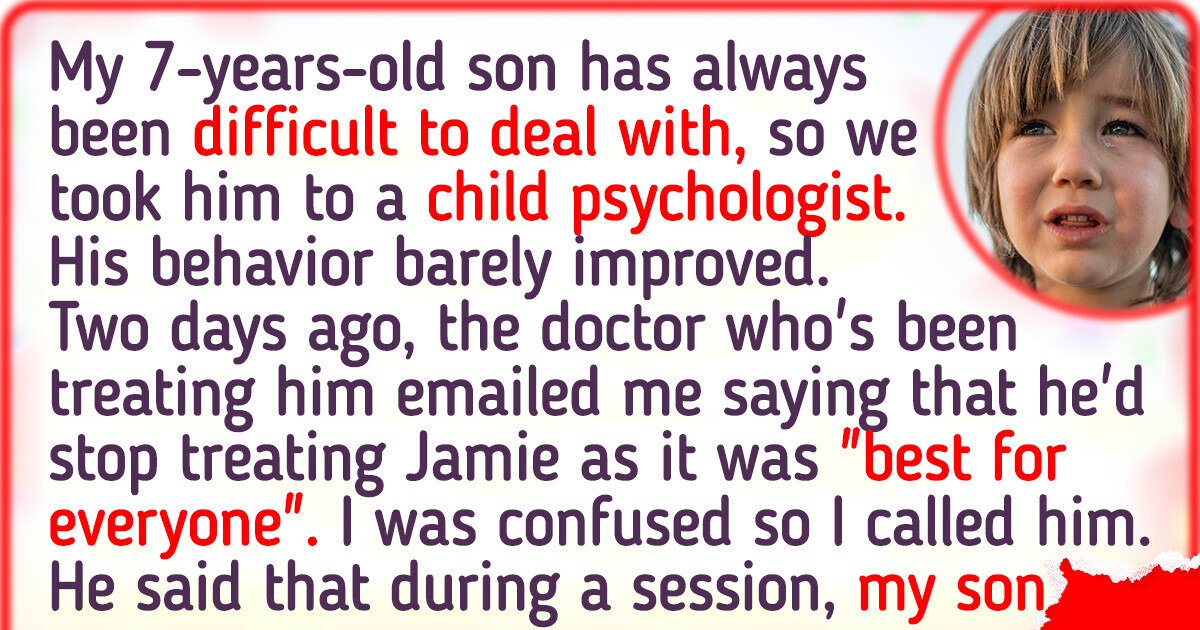
Parenting is challenging, especially with a difficult child. Many people can share their opinions, but no one truly understands how hard it is until they've experienced it themselves. One of our readers reached out to us for help with the ongoing drama her son is facing. Jamie's behavior led the doctor to cancel their therapy sessions, and the reason was truly unsettling.
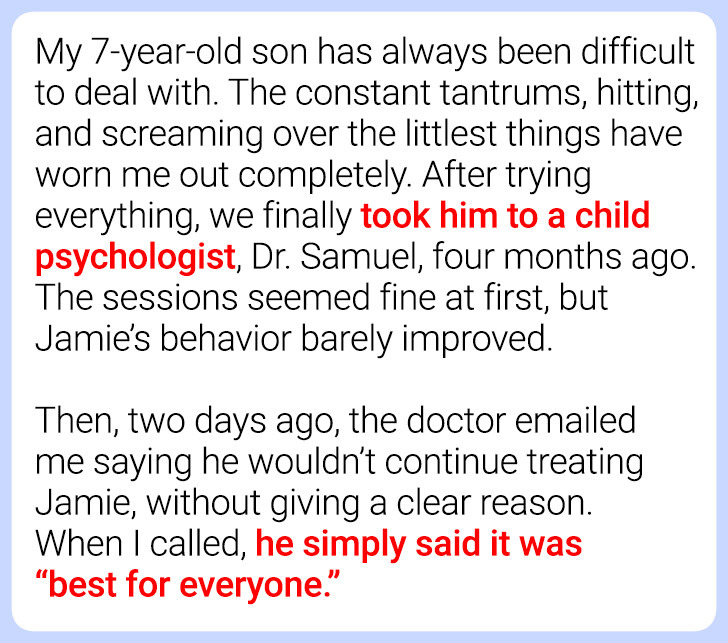
The next day, Jamie’s school reported another meltdown where he yelled at a teacher, and the counselor suggested more intense therapy. Worried, his parent called Jamie’s old preschool teacher, Ms. Anderson, who mentioned that Jamie used to talk about an imaginary friend named Claire. That night, the parent found a crayon drawing under Jamie’s bed showing two figures—one labeled Jamie and the other “Claire,” with Claire’s face scribbled out in red.
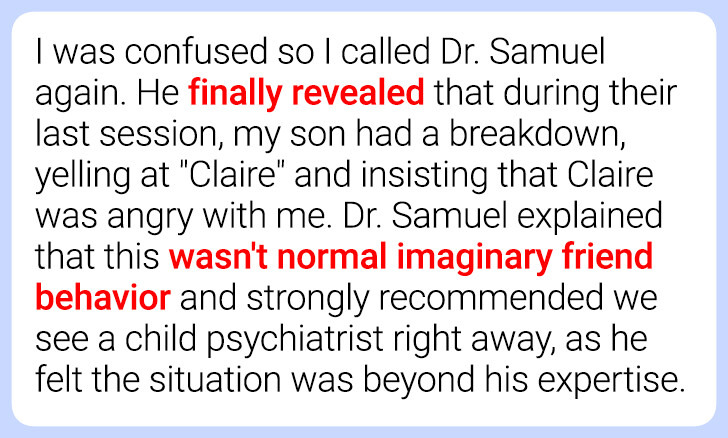
The parent is scared, not knowing if this is just a phase or something more serious. With a psychiatrist appointment coming up, they feel lost and are asking for advice from others who’ve been through the same thing.
How to see whether something bothers your kid.
- If your child starts losing interest in things they used to enjoy, has frequent tantrums or aggressive behavior, shows ongoing sadness, worry, or fear, avoids social situations, goes back to habits like thumb-sucking or bed-wetting, or struggles with focus and restlessness, and these signs last for more than a few weeks, it’s important to talk to them and get professional help.
- Physical signs include trouble sleeping or sleeping too much, difficulty getting up, changes in eating habits, noticeable weight loss or gain, and unexplained aches like headaches or stomachaches.
- Other signs to watch for are a decline in academic performance, trouble socializing or a reluctance to go to school, and withdrawal from friends and activities.
What to do in this situation.
If your child's mood or behavior changes stick around for more than a few weeks and start causing problems with their daily life, relationships, or activities, it’s really important to get professional help quickly. The sooner you act, the better!
Here’s where you can start: talk to your child’s preschool or school teacher—they might have noticed things too. A school counselor can also guide you on the next steps. You can reach out to your child’s doctor or pediatrician, who can check things out and point you in the right direction. A psychologist who works with kids and families can help your child understand and manage their feelings. Don’t forget about mental health social workers or your local children's health center, as they offer great support too. And finally, check out local mental health services for more help. Getting the right support early can make a big difference!
It can be really hard to tell the difference between normal and unusual behavior in kids. Check this article if you want to learn more.
Comments
Related Reads
My Stepmom Demands That I Give Up on My Dream So Her Daughter Can Go to College

I Refuse to Let My Boss Control My Breastfeeding Breaks at Work
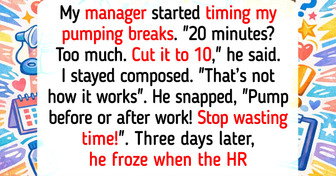
10 Moments Where Kindness Didn’t Argue—It Acted

I Gave My MIL a Simple Gift—But My Family Demanded I “Choose a Side”

15 Moments That Inspire Us to Keep Our Kindness, Even When the World Gets Heavy
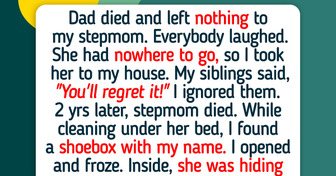
12 Stories That Show the Bravest Thing You Can Do Is to Be Kind
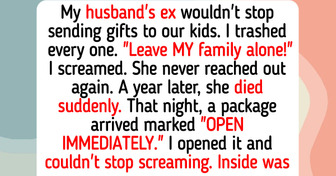
I Refused to Expose My Salary to My Parents, Now My Life Is Falling Apart
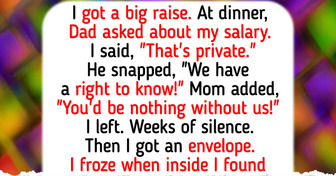
12 Moments When Stepparents Became Their Family’s Silent Heroes
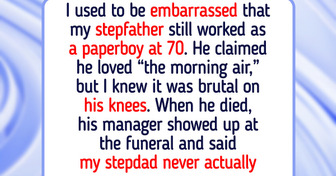
My Dad Demanded to Give My Stepsister the Spotlight on My Wedding—But I Reclaimed It
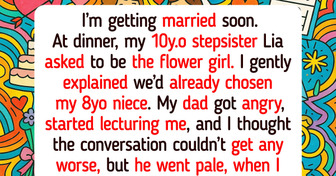
I Refuse to Let My Daughter Treat My Home Like Her Business, I’m Not Her Personal Maid
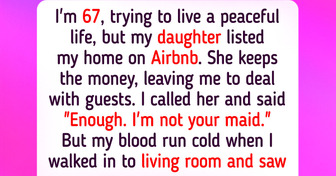
I Canceled My Sister’s Free Childcare—Her Cruel Words Cost Her My Support
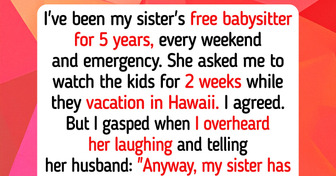
My Daughter Disrespected My Sacrifices—And I Refused to Let It Slide
